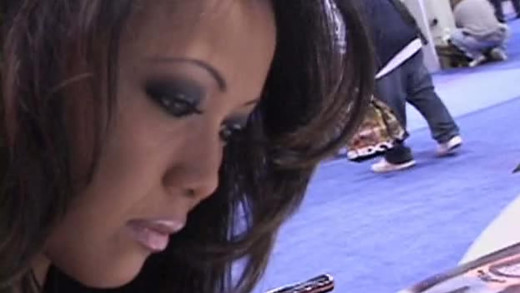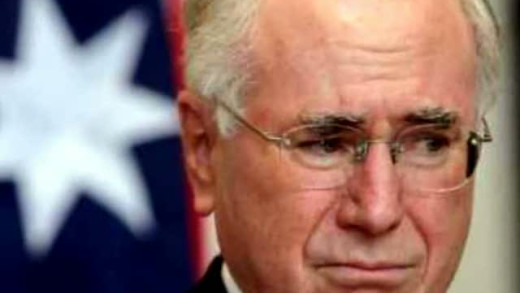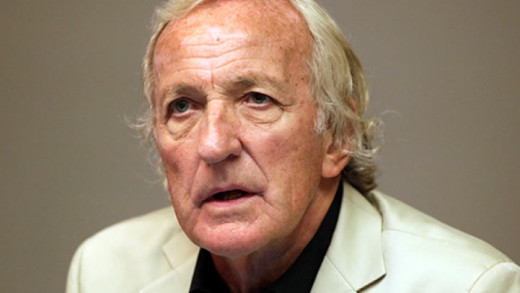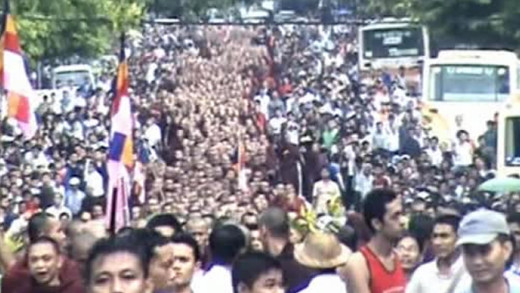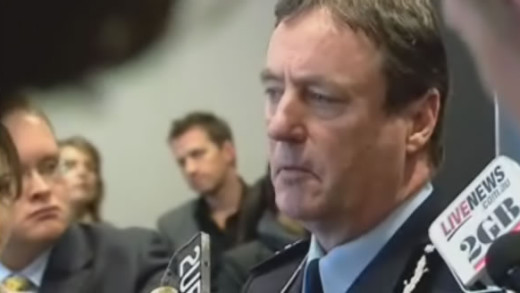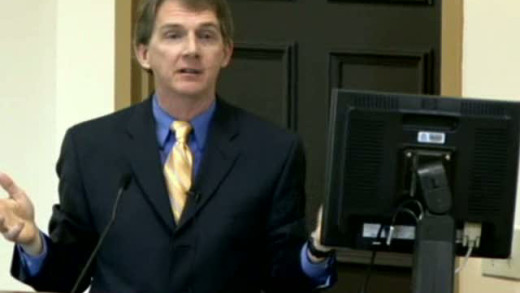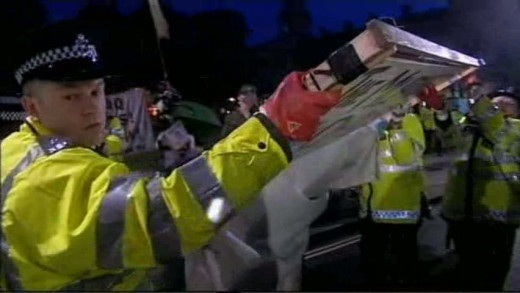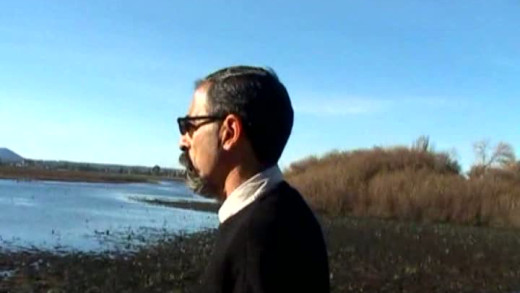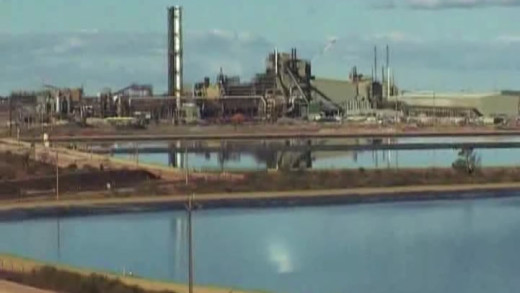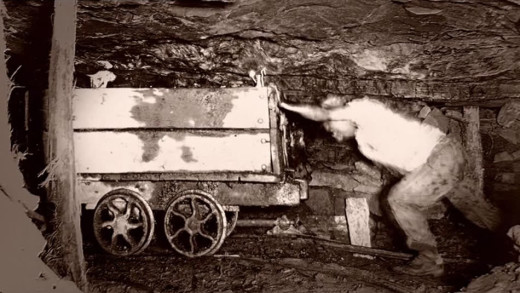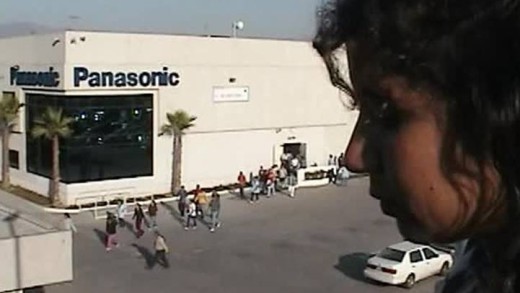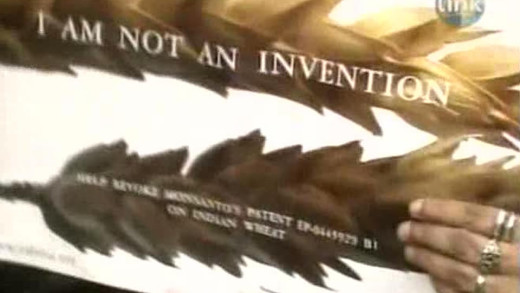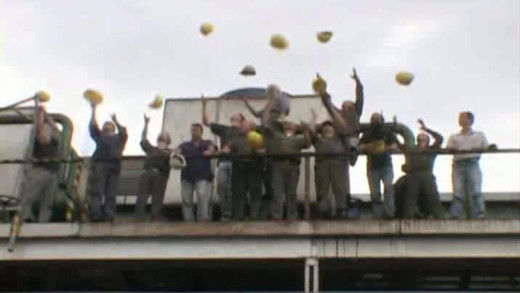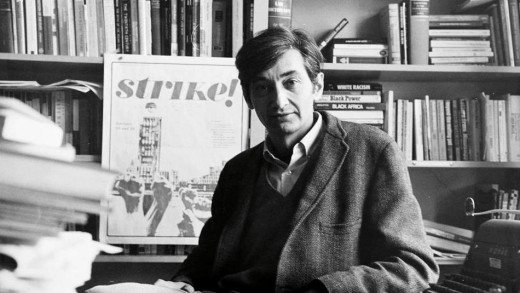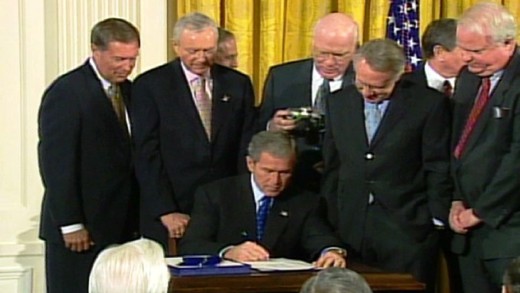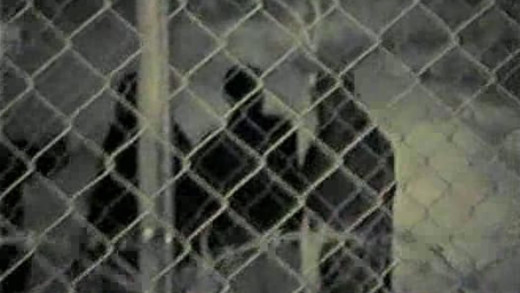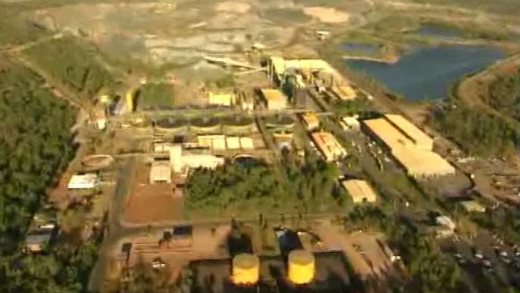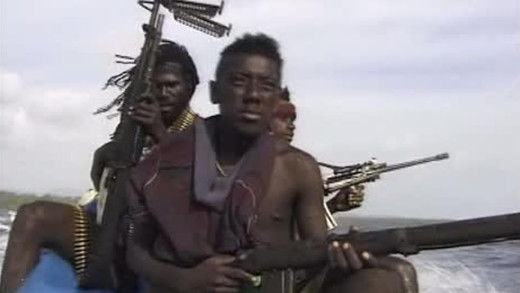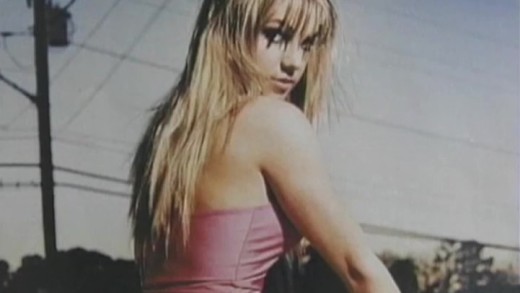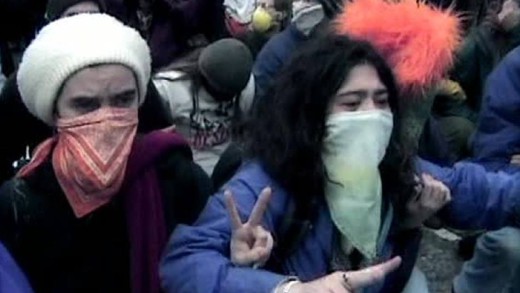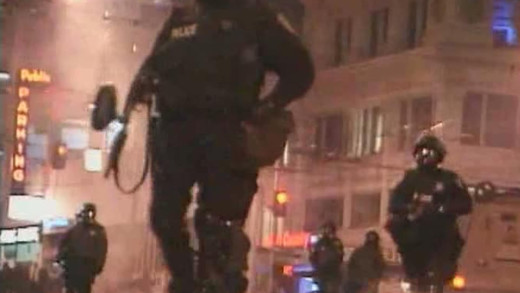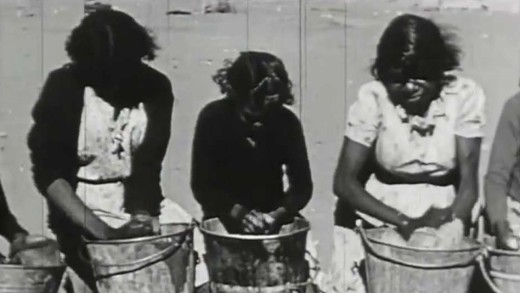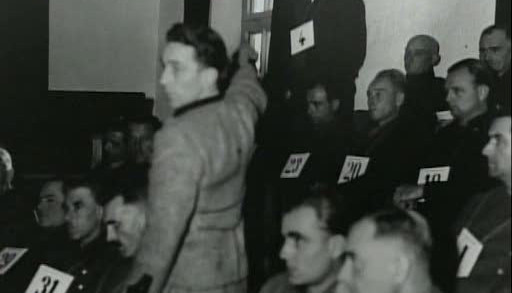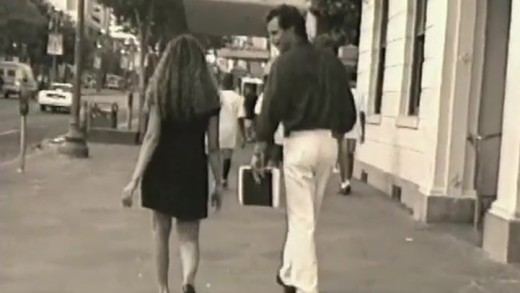Presented by author and activist Naomi Wolf, The Beauty Myth explores the phenomenon of how the social power and prominence of women has increased in the past few decades, alongside a paradoxical increase in the pressure they feel to adhere to unrealistic social standards of physical beauty, appearance and presentation. It seems the more legal and material hindrances women have broken through, the more strictly and heavily and cruelly images of female beauty have come to weigh upon us. Women have breached the power structure, but meanwhile eating disorders have risen exponentially and cosmetic surgery has become a fastest-growing specialty. Pornography has become the main media category--ahead of legitimate films and records combined--and thirty-three thousand American women told researchers that they would rather lose ten to fifteen pounds than achieve any other goal. How did this come to be? The Beauty Myth shows how the edacious commercial culture drives this pressure and leads to a pervasive preoccupation with appearance in both sexes, compromising the ability of women to be effective in and accepted by society. The film is a call to question the culture and redefine the notions of success, beauty and indeed what it means to be a sane human being in this toxic culture.
Once relegated to the margins of society, pornography is now the most pervasive and visible aspect of popular culture, assuming an unprecedented role in media as its content becomes more harsh and extreme, racist and abusive. This eye-opening and disturbing film moves beyond frivolous "liberal versus conservative" debate and tackles the real issues surrounding pornography by placing the voices of performers themselves, producers and critics directly alongside the observations of women and men as they candidly discuss the role porn has played in shaping their sexual imaginations and relationships. The Price Of Pleasure reveals a nuanced portrait of how pleasure and pain, commerce and power, freedom and responsibility have become extremely twisted by popular culture, usurping the most intimate area of our lives.
Fool Me Twice
Fool Me Twice documents the Australian government's lies about the East Timor massacres, the cover-up of the Bali bombings (including the 1993 World Trade Centre attack) and subsequent anti-terror legislation forced through parliament by the Howard government. Laws that are still in effect today...
Renowned independent journalist John Pilger speaks about complicity and compliance, censorship and citizen journalism as well as issues such as the holocaust in Iraq and Kevin Rudd's shrewd political apology to the Indigenous peoples of Australia as Prime Minister. "These days, a one-dimensional political culture ensures that few writers write, or speak out, as they did in the last century. They are talented, yet safe. In the media, the more people watch, the less people know. Beneath the smokescreen of objectivity and impartiality, media establishments too often ventriloquise the official line, falling silent at the sight of unpleasant truths."
By risking torture and life in jail, courageous young citizens of Burma live the essence of journalism as they document the uprisings against the military regime in 2007. Armed with small handycams, the Burma VJs stop at nothing to make their reports from the streets of Rangoon. Their video footage is smuggled out of the country and broadcast back in via satellite and offered up for use in the international media. The whole world witnesses single event clips made by the VJs, but for the very first time, the individual images have been put together here to tell a much bigger story...
The Australian Federal Police--the glamour police force that was set-up after the Sydney Hilton Hotel Bombing in 1978--has enjoyed consistent showers of praise by politicians and the public ever since it's inception. However, the once-lionised AFP is now being ridiculed for bungling, excessive secrecy and collusion after the catastrophic failings of the "terrorism case" against Dr Mohammed Haneef. Good Cop, Bad Cop reveals how the Haneef case is a symptom of the deep cultural problems that beset the AFP...
Law Professor James Duane from the Regent Law School in Virginia Beach, Virginia; and Police Officer George Bruch from the Virginia Beach Police Department, both explain why even innocent people should never talk to the police or agree to answer questions from the police. Citing a trove of examples and even though pertaining to US law, this talk is particularly applicable for political activists the world over as Security Culture 101.
This documentary looks at the erosion of civil liberties and increase in government surveillance since 1997 in the UK with the advent of "New Labour" and Tony Blair. Modern politicians, regardless of left or right, always seem to promise hope and change, but what is delivered is more of the same. To illustrate this, the film tracks 6 key areas that have been rapidly dismantled in so-called democracies over the last few decades: Freedom of speech; the right to assemble and protest; the presumption of innocence; the right to privacy; detention without charge, the prohibition on torture...
Payback Time
Payback Time recounts the experiences of Ramin Bakhtiarvandi as an asylum Seeker in Australia's Detention Centres from June 2000. After his release from a 4 year long detention, Ramin receives a $227,000 bill from the government. Payback Time raises serious questions about the conduct of the Australian Government to this day when dealing with asylum seekers, as well as revealing the harsh realities of a racist culture and complicit mainstream media.
Atomic Footprints uses archival footage and new material from the outback of Australia to examine the nuclear fuel chain, and the current push to expand uranium mines throughout Australia. This film speaks with local indigenous communities about the impact of already-existing uranium mining and refinement, and shows in clear examples some of the reasons why we should continue to oppose it around the world.
In 1929, in the face of collapsing demand for coal and a deepening economic crisis, mine owners in the Hunter Valley of New South Wales, Australia; announced, with the support of government, that they would cut miners' wages and strip them of their workers rights. When the workers refused to agree to these terms the mine owners locked the gates. 10,000 miners, pit boys and their families now found themselves without a job. What began as an dispute about industrial labour ended up overpowering a government, crippling an industry and besieging a community. This event challenged the rights of every Australian worker, and redefined the political and industrial landscape of a country that witnessed an event forever remembered as 'The Great Australian Lockout.'
The Trap
If one steps back and looks at what freedom actually means in the West today, it's a strange and limited kind of freedom. The United States and its empire self-describe fighting the Cold War for "individual freedom," yet it is still something that the leaders of our so-called democracies continually promise to give us. Abroad, in Iraq and Afghanistan, the attempt to force "freedom" on to other people has led to more than just bloody mayhem, and this, in turn, has helped inspire terrorist attacks in Britain and elsewhere. In response, the government has dismantled long-standing laws that were designed to protect individual freedom and civil liberties.
In Mexico, 'maquiladoras' is a word used to describe the sort of factories that have become commonplace with globalisation—mass assembly and manufacturing plants primarily staffed by women for low wage and long hours in unsafe and toxic conditions. Tijuana has attracted so many such factories that it has gained the nickname Maquilapolis. Delving into the landscape of this, this film asks the question: What is the human price of globalisation? Maquilapolis brings American and Mexican-American filmmakers together with Tijuana factory workers and community organisers to answer that question and tell the story of globalisation through the eyes and voices of the workers themselves. The result is a film to inform and inspire, as each day the workers confront labor violations, environmental devastation and urban chaos...
Bullshit follows environmental activist Vandana Shiva as she travels around the world to in her quest to eliminate the use of genetically modified foods and seeds in her home country of India and other developing countries. Shiva argues that the “ownership of life” through the patenting of natural products, namely grains altered through genetic modification (GMOs), is not in our best interests, and is in fact harmful to agriculture in developing countries...
The Take
The Take documents the story of workers in Buenos Aires, Argentina who reclaim control of a closed auto-plant where they once worked and turn it into a worker cooperative. The factory closed as a result of the economic policies of the government under the watchful eye of the IMF. While in bankruptcy protection, the company appeared to be selling off property and inventory to pay creditors -- a move which further reduced the chances of the facility returning to production. Though as the movement gains strength, having started with a garment factory several years earlier, the factory workers wade through courts and the legislative system, finally establishing their own control and winning the right to operate it themselves, as a cooperative...
This film profiles Howard Zinn, historian, political scientist and author, who tells us the personal stories about more than thirty years of fighting for social change, from teaching through to recent protests against war. A former bombardier in World War II, Zinn emerged in the civil rights movement in the United States as a powerful voice for justice. Although a fierce critic, Zinn gives the viewer inspiration in that by learning from history and engaging politically, we can each do our part to make a difference in the world.
A few weeks after the September 11 attacks in 2001, the United States congress quickly passed the USA PATRIOT Act--a complicated and controversial law which was purportedly required to help with tracking future terrorist threats. Unconstitutional sets out to explain this law and examine its true impact. Citing a trove of examples from people whose lives have been directly effected, what we see is how law enforcement has rounded up Muslims and people with Arabic names to detain them for wild unspecified lengths of time without due process or even charges; the massive curtailment of civil liberties; erosion of enshrined privacy rights, increases in surveillance; and the abuses of Guantanamo Bay and Abu Ghraib.
To its backers, Woomera detention centre played a so-called "humane yet crucial role in housing the growing numbers of 'boat people' landing on Australia's shores." To its critics, this prison, as a heavily guarded cluster of buildings ringed by red desert and razor wire, represented the "dead-heart of asylum-seeker policy" and Australia's lacklustre regard for human rights. Woomera opened for business less than four years ago. Built for 400 people, it soon housed more than 1,400. It became notorious for riots, protests and breakouts by desperate detainees. There were reports that mental illness and self-harm were rife and as the reports mounted, TV cameras captured the protests at the perimeter fence. Certain press warned of detainees' declining health and morale. Yet when Woomera was quietly placed in mothballs last month, its full story remained to be told...
To many in both business and government, the triumph of the self is the ultimate expression of democracy, where power is truly moved into the hands of the people. Certainly the people may feel they are in charge, but are they really? The Century of the Self tells the untold and controversial story of the growth of the mass-consumer society. How is the all-consuming self created, by whom, and in whose interest?
Fight For Country tells the story of one of Australia's largest ever land rights and environmental campaigns, to stop the building of a second uranium mine within the World Heritage listed Kakadu National Park in the Northern Territory, Australia. In 1998 the issue came to a head when Indigenous elders and activists called on people to come from around Australia and the world to blockade the construction of the mine and proposed 'uranium deposits', collectively called Jabiluka. The film follows activists and speaks with Aboriginal people about the impacts of the mine, following the community response and protest actions against the mines development, where over 500 people were arrested in the course of the eight-month blockade.
The Coconut Revolution documents the struggle of the indigenous peoples in the Bougainville Island. The movement is described as the world's first successful eco-revolution, in that the successful uprising of the indigenous peoples of Bougainville Island against the Papua New Guinea army stopped the mining plans of the RTZ company to exploit their land for resources...
At the turn of the millennium, a group of eleven girls aged 8 to 16 from a variety of socio-economic backgrounds were interviewed about their views on media culture and its impact on their lives. Their insightful and provocative responses reveal how the attitudes and expectations of young girls are influenced by a saturated media culture. Using excerpts culled from a typical week of television broadcasting alongside the interviews, What a Girl Wants aims to provoke debate about the effects of media culture and, ideally, act as a catalyst for change in media content.
The myths of globalisation have been incorporated into much of our everyday language. "Thinking globally" and "the global economy" are part of a jargon that assumes we are all part of one big global village, where national borders and national identities no longer matter. But what is globalisation? And where is this global village? In some respects you are already living in it. The clothes in your local store were probably stitched together in the factories of Asia. Much of the food in your local supermarket will have been grown in Africa...
30 Frames A Second is an immersive first-person account of the events that unfolded during the week the World Trade Organisation came to Seattle in the United States, November 1999. The film is assembled from the perspective of 15-year veteran network-news cameraman Rustin Thompson, who became disillusioned with mainstream media and hence covered the WTO as an independent journalist. As such, even with press credentials for the event, Thompson is swept into the retribution of the state and police power which hit at the protests with tear gas, pepper spray, and police abuse. For him and the protesters alike, it begs the question about the functioning of the so-called democracies we live in, where civil liberties and human rights are curtailed in favour of facilitating the vast corporatocracy and global economic empire—precisely one of the points that sparked protests in the first place...
Recorded by over 100 media activists, this film tells the story of the enormous street protests in Seattle, Washington in November 1999, against the World Trade Organisation summit. Vowing to oppose--among other faults--the WTO's power to arbitrarily overrule nations' environmental, social and labour policies in favour of unbridled corporate greed, thousands of people from all around the United States came out in force to stop the summit. Against them was a brutal police force and a hostile media. This Is What Democracy Looks Like documents the struggle, as well as providing a narrative to the history of success and failure of modern political resistance movements.
In Australia between 1910 and 1970, one in three children were removed from Aboriginal families and placed in government institutions and foster homes. These children, in most cases, were never to see their family again. The film tells the story of three Aboriginal people who were removed. Bobby Randall, Cleonie Quayle, and Daisy Howard. Their stories are combined with interviews with well-known Australian historians Marcia Langton and Henry Reynolds, who describe the racist assumptions behind these policies. Removing children was a deliberate government policy and the aim was the eventual disappearance of Aboriginal people as a whole.
In the early 1940s, hundreds of thousands of people unknowingly became test subjects in toxins experiments and biological weapons tests conducted by the United States government. LSD tested on civilians, nerve gas sprayed into suburbs, hospital patients injected with plutonium, children exposed to biological and chemical agents just to see what would happen...the list goes on. And in most if not all cases, tests were carried out without the knowledge or consent of those involved. In 1996, evidence of these secret operations hit the news, uncovering a history of secret operations and covert projects that cast a large shadow over the operations of US military and intelligence agencies, to this day. Experiments with biological weapons and the testing of chemical warfare were only part of the story...
War Zone is a short film about street harassment. Filmmaker Maggie Hadleigh-West walks crowded urban streets armed with a camera and microphone, trailed by one or two women also with cameras. Whenever a man harasses her, with ogling or words, she turns the camera on him, moves in close, and questions his behaviour. The questions are not usually for dialogue but more for making him as uncomfortable as he's made her. More than 50 such encounters are included: the men react with bravado, embarrassment, or anger. None apologise. Interspersed are the filmmaker's voice-over stories of growing up and dealing with men, as well as interviews with several women who talk about how they handle similar street harassment and what they feel about it. What does it feel like to be a woman on the street in a cultural environment that does nothing to discourage men from heckling, following, touching or disparaging women in public spaces?

